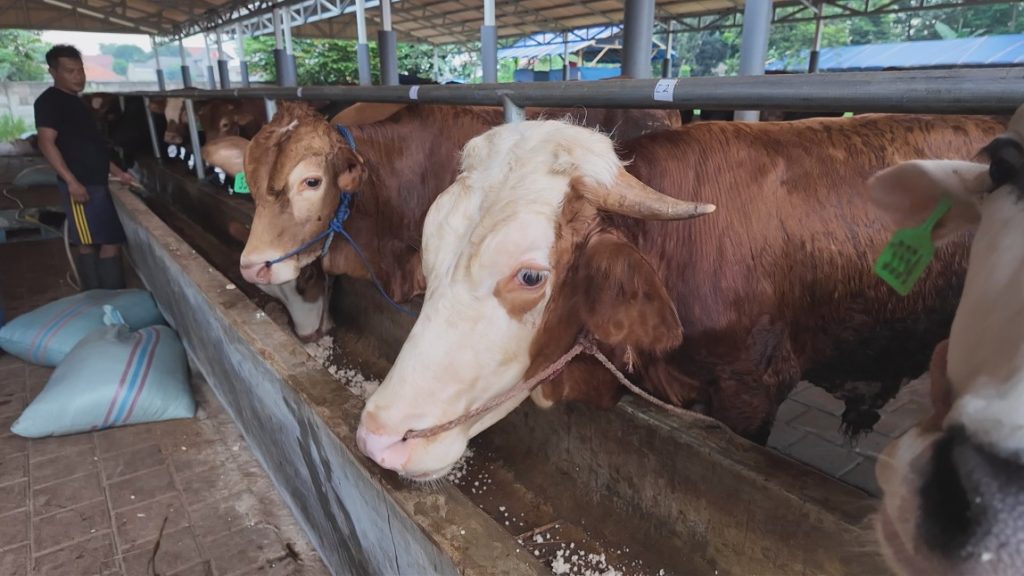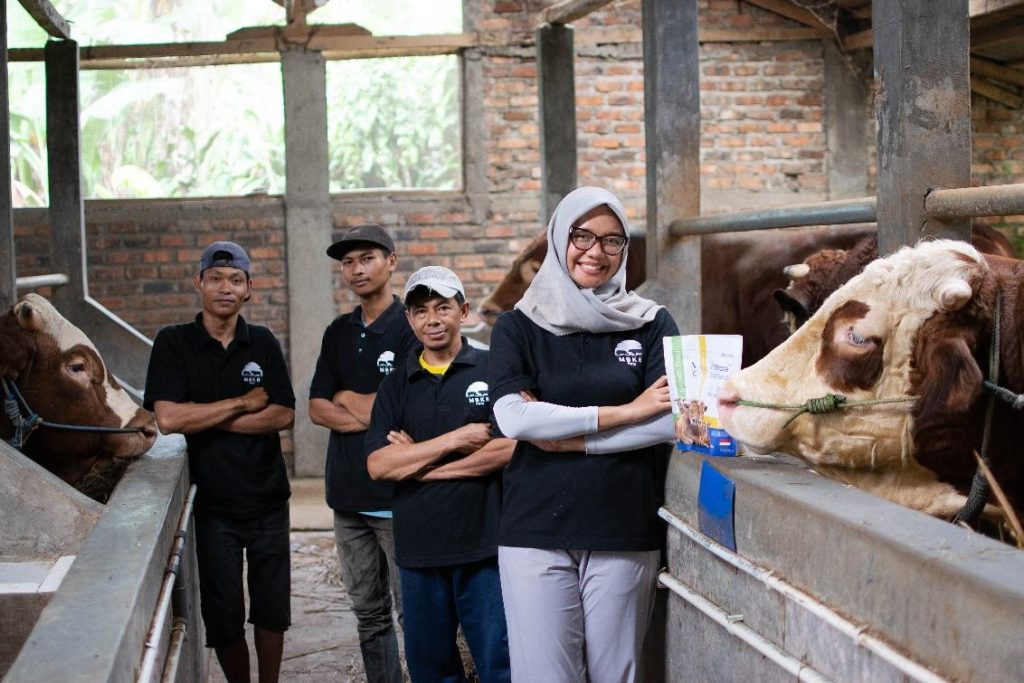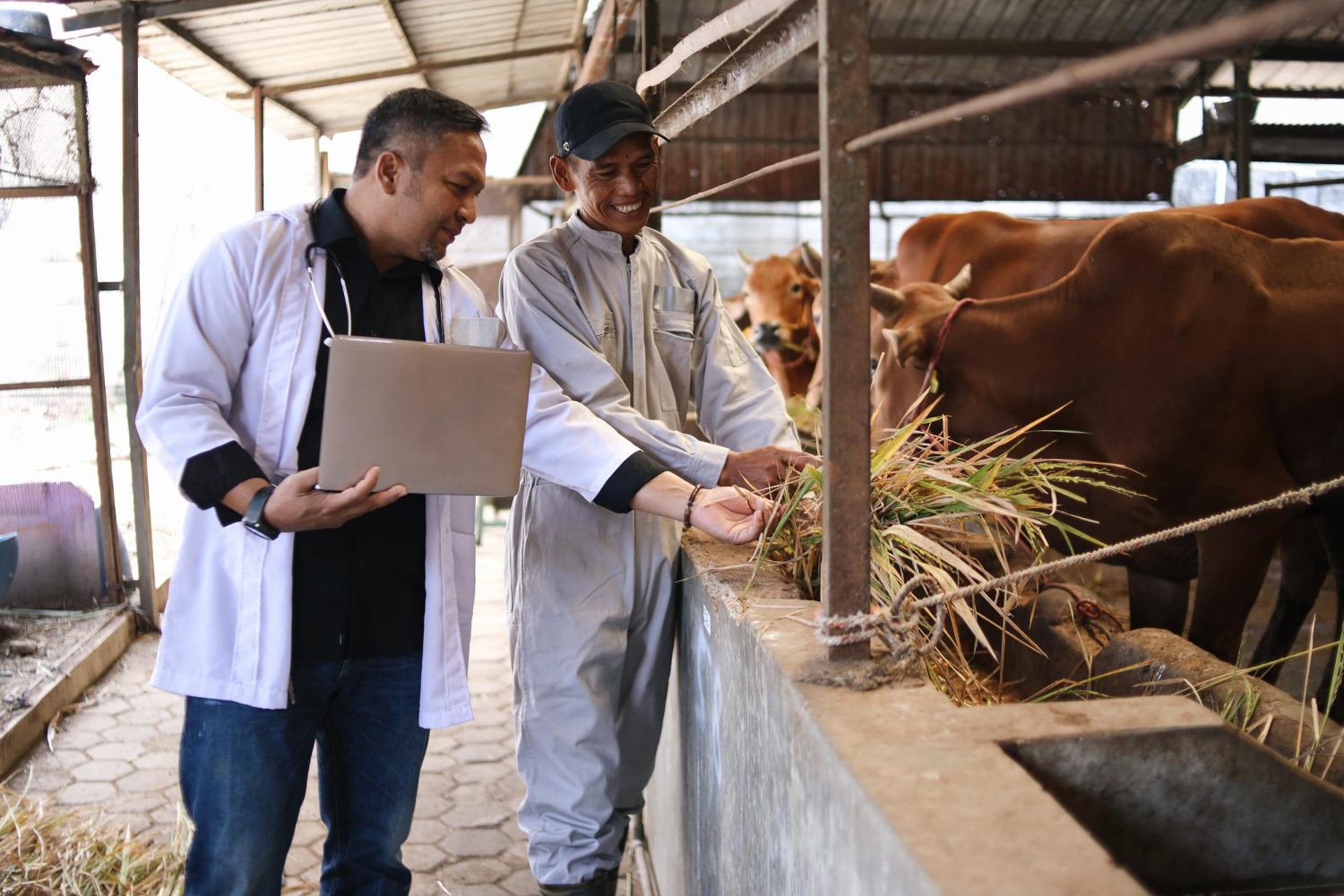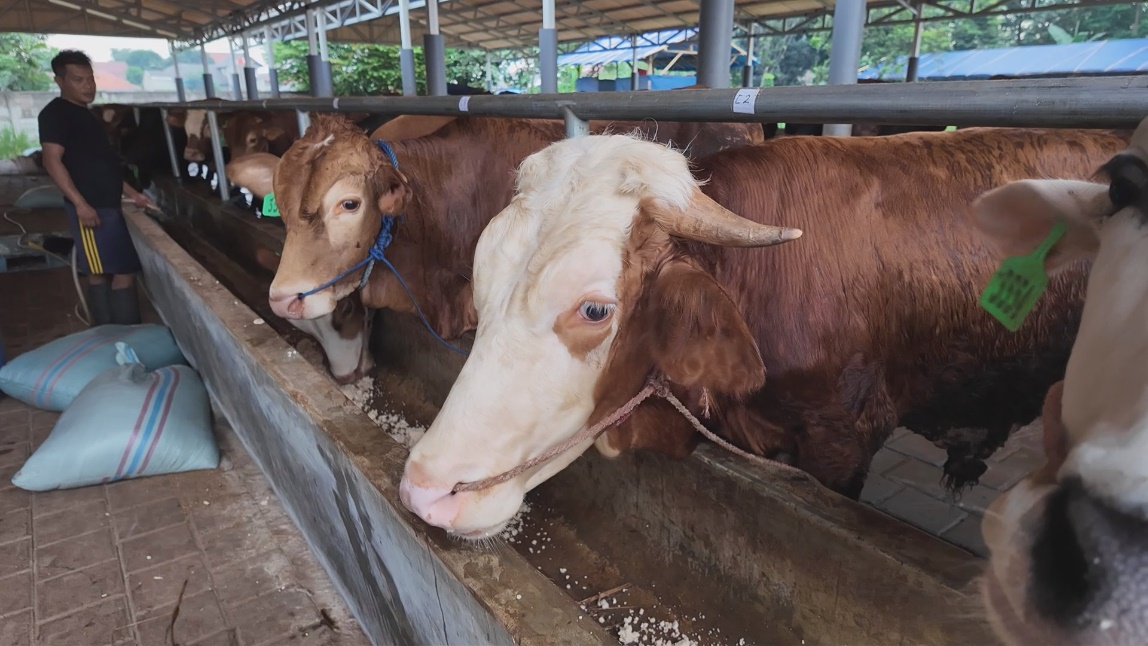Why Do Cows Eat a Lot But Are Still Thin?

Many farmers experience similar problems: they are fed large amounts of feed—whether green fodder, concentrates, or other mixtures. However, their cattle's weight remains stagnant, their coats become dull, and they become susceptible to illness. One often-overlooked cause is micronutrient deficiencies and impaired feed absorption due to rumen microbiota imbalances, particularly during the growth and finishing phases.
This condition is exacerbated if the feed provided is of low quality, or without supplements such as vitamins, minerals, and digestive enzymes. According to research by Abdelrahman et al. (2014) in Livestock Science, micronutrient deficiencies such as zinc, selenium, and vitamin E contribute directly to reduced daily weight gain (ADG) and immunity in cattle. Furthermore, Jouany & Morgavi (2007) in Animal Feed Science and Technology explain that disruption of the rumen microflora balance can inhibit fiber fermentation and reduce feed efficiency, especially during the transition from green fodder to high-concentrate feed.
In this context, probiotics and vitamins play a crucial role in improving digestion and metabolism, supporting muscle growth, and increasing feed conversion efficiency (FCR). With proper micronutrient management and rumen health, the feed provided can be fully converted into quality meat.
Probiotics and Vitamins: The Hidden Support Team
Probiotics are live microorganisms that help maintain the microbial balance in the digestive tract. In beef cattle, probiotics can:
- Increases fiber and protein digestibility
- Suppresses the growth of pathogenic bacteria
- Reduces the risk of diarrhea, especially in young cattle or those recently returned from the market
Meanwhile, vitamins and minerals play a role in regulating metabolism, supporting muscle tissue growth, and strengthening the immune system. A combination of vitamins A, D3, E, B-complex, and C is essential for:
- Bone and muscle growth
- Digestive enzyme production
- Stress resistance (heat, transportation, vaccination)
According to a study from the Journal of Animal Science (Zein et al. 2021), the use of vitamin and probiotic supplements in beef cattle increased Average Daily Gain (ADG) by up to 18% and significantly improved Feed Conversion Ratio (FCR).
Total Nutrition Solution: VitalGraze® Growth Feed

To address these challenges, Ben Pharma Global presents VitalGraze® Growth Feed – a homogenized powder premix specially formulated to support the growth, finishing, and recovery phases of beef cattle. This product not only provides complete vitamins and minerals but is also enriched with the natural enzyme papain and choline to support liver health and metabolic efficiency.
Key Benefits of VitalGraze® Growth Feed:
- Increases muscle growth and weight gain efficiency
- Accelerates recovery from stress, environmental adaptation, or vaccination
- Improves appetite and feed digestibility
- Supports immunity and maintains liver function
- Improves carcass quality and FCR efficiency
Advantages Compared to Other Products
- Specific Formulation for Ruminants
Designed for the complex rumen digestive system—easily absorbed and efficiently utilized. - Synergistic Combination of Vitamins and Minerals
Vitamins A, D3, E, B-complex, and C help energy metabolism, muscle protein synthesis, and immunity. - Contains Natural Papain Enzyme
Helps break down protein in feed to make it easier to absorb, especially from low-quality feed. - Fortified with Choline and Vitamin C
Supports liver function, accelerates detoxification, and improves stress responses to heat, vaccines, or travel.
How to use
- Cattle/buffalo: 25–30 grams per head per day mixed into feed
- Goats/sheep: 15–20 grams per head per day
- Mass mix: 1–2 kg per 200 kg of feed
Suitable for use:
- Fattening beef cattle (finishing)
- Young post-weaning cattle (weaning)
- Young dairy cattle before lactation
- Cows newly entering the fattening phase from the market (stress adaptation)
Conclusion
Probiotics and vitamins aren't just supplements, they're the foundation for optimal performance in beef cattle. Without them, even the best feed won't work optimally. With VitalGraze® Growth Feed, you can ensure that every gram of feed is converted into quality meat and improved productivity.
Bibliography
- Abdelrahman, M. M., Alhidary, I. A., & Alyemni, A. H. (2014). Influence of different levels of trace minerals on growth performance and immune response of growing calves. Livestock Science, 168, 94–98. https://doi.org/10.1016/j.livsci.2014.07.014
- Jouany, J. P., & Morgavi, D. P. (2007). Use of ‘natural’ products as alternatives to antibiotic feed additives in ruminant production. Animal Feed Science and Technology, 139(1–2), 1–23. https://doi.org/10.1016/j.anifeedsci.2006.02.010
- Zein, A. B., Khasrad, K., Hasnudi, & Febrisiantosa, A. (2021). Effect of multi-vitamin and probiotic supplementation on performance and feed efficiency in beef cattle under tropical condition. Journal of Animal Science and Technology, 44(3), 145–152. https://doi.org/10.14334/jitv.v44i3.2875


